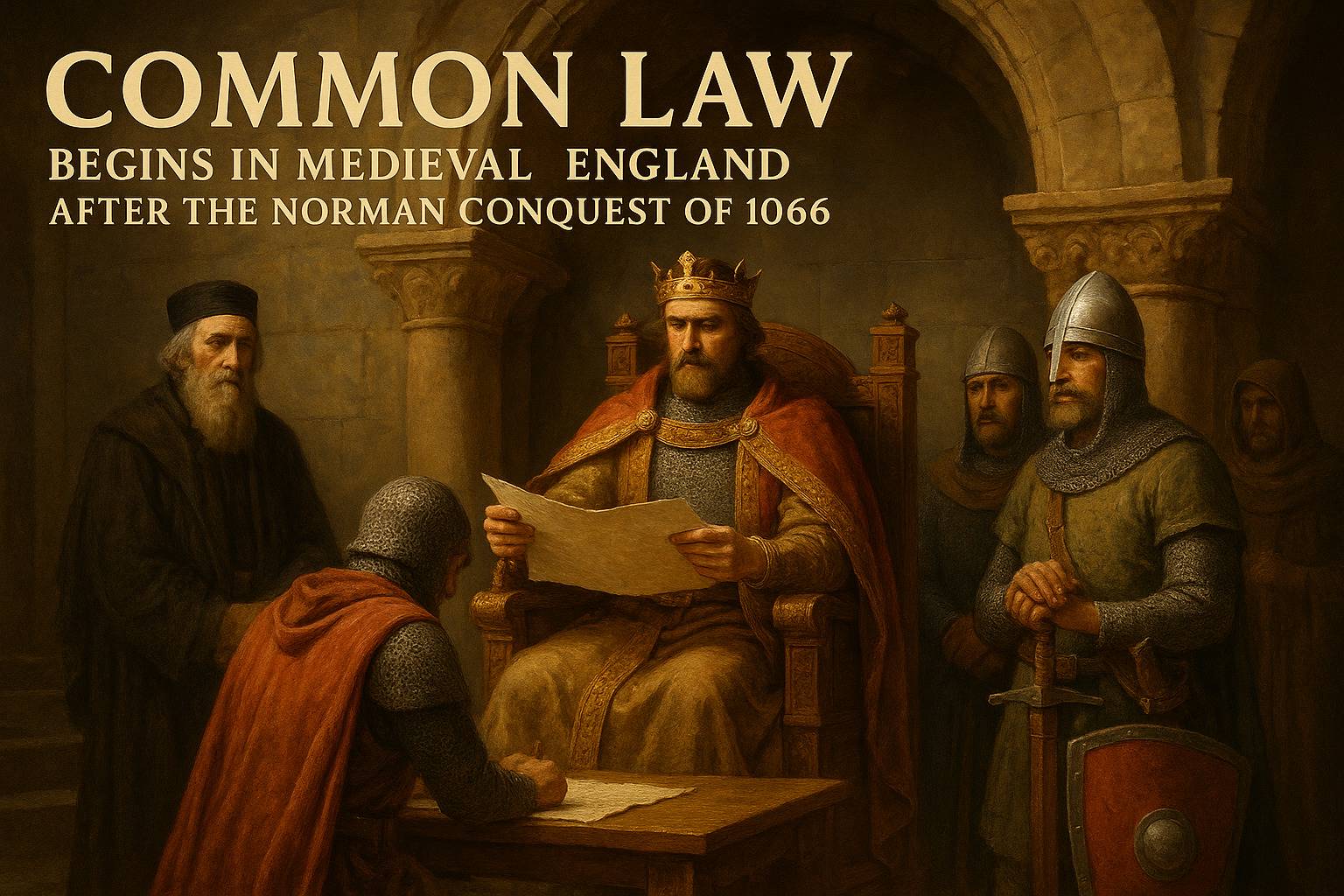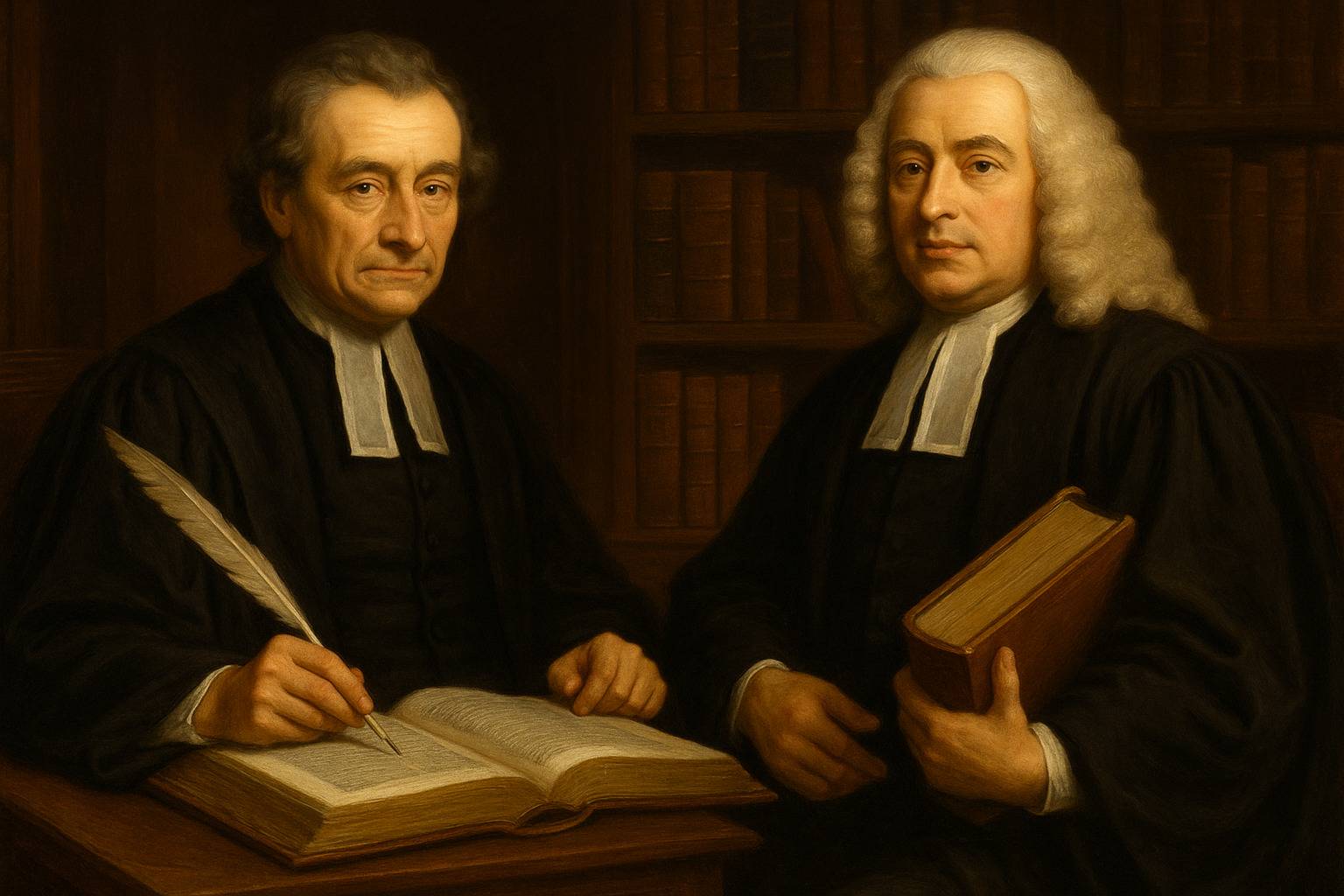Common Law States and What It Means in Georgia
When most people hear the term common law, they often think of marriage. Yet long before the phrase ever had anything to do with relationships, it began as a system for defining ownership, property, and justice. The earliest form of common law was not about who loved whom. It was about who owned what.
In the world of real estate, understanding this history offers more than trivia. It helps explain how our modern property laws developed and why terms like “title,” “ownership,” and “inheritance” still carry roots that stretch back nearly a thousand years. The legal traditions that began in medieval England after the Norman Conquest of 1066 continue to shape how property is transferred, protected, and disputed in states like Georgia today.
Before we explore how Georgia views common law marriage and what that means for couples and property owners, it helps to understand the foundation, the original meaning of the term common law, how it began, and how it evolved into the system that influences real estate and ownership across the United States.

The Origin of the Term “Common Law”
The story of common law begins in medieval England, following the Norman Conquest of 1066. When William the Conqueror took control of England, he inherited a patchwork of local customs and regional laws. Every manor and shire followed its own rules, often guided by local lords or tribal leaders. This made it difficult to create consistency in matters of land ownership and justice.
To solve this, the king appointed royal judges to travel across the kingdom and apply a common system of law, a uniform set of rules that would be fair and predictable no matter where a person lived. This new structure was called the common law because it was “common to all” the king’s subjects.
At its heart, it was a system designed to protect ownership, clarify inheritance, and resolve land disputes. The early common law courts were not concerned with personal relationships or marriage. Their purpose was to determine boundaries, enforce contracts, and establish who had rightful claim to property.
The Connection Between Common Law and Property
This is where the roots of modern real estate law truly began. The royal courts kept written records of their decisions, allowing judges to refer back to earlier cases when making new rulings. Over time, these written opinions, known as precedents, created consistency. The same rules that applied to one landowner in the north would apply to another in the south.
From this process emerged the foundation of title law, inheritance rights, and ownership principles that still guide property transactions today. It also introduced the idea that the law should evolve through real cases rather than royal decrees, an approach that remains central to how courts interpret property and contract disputes.
In this way, common law became the blueprint for fairness in ownership, ensuring that every person’s rights could be recognized and protected.

How Common Law Expanded Over Time
As England grew wealthier and more structured, the common law system expanded beyond property. By the sixteenth and seventeenth centuries, judges and legal scholars at the Inns of Court in London were organizing and studying centuries of rulings. Thinkers such as Sir Edward Coke and Sir William Blackstone helped transform common law from a practical system for settling land disputes into a refined body of principles that influenced nearly every aspect of life, including commerce, contracts, and eventually marriage.
When English settlers brought their legal traditions to the American colonies, they also brought the common law. The system adapted over time, blending with written constitutions and state statutes. Yet its essence remained the same. It emphasized fairness through precedent and protection of ownership.
Why This History Still Matters in Georgia
In Georgia, the same principles that once governed estates and manors in medieval England now govern modern real estate. The concepts of title, deed, and inheritance all trace their lineage back to common law reasoning. Even our property contracts, closing procedures, and dispute resolutions reflect the same idea that rights must be clearly defined and consistently enforced.
This background becomes especially important when discussing common law marriage, which, though it sounds similar, developed centuries later. The two concepts share a name because they both evolved from the same foundation of fairness and custom, but their purposes are very different. One shaped how property is owned and transferred, and the other shaped how relationships could be recognized by law.
Before we look at which states still recognize common law marriage and how Georgia fits into that picture, it helps to remember this simple truth. Common law began as the law of property, and its influence still guides how homes, land, and ownership are understood today.
What Is Common Law Marriage
A common law marriage occurs when two people live together, intend to be married, and present themselves to others as husband and wife, even though they never obtained a marriage license or held a formal ceremony. In certain states, this arrangement grants couples nearly all the same legal rights as traditionally married spouses.
To qualify, couples must meet three key requirements. They must be legally able to marry, meaning they are of age and not already married to someone else. They must also mutually agree to be husband and wife, and they must live together while presenting themselves publicly as married. Simply living together is not enough. The couple must behave in ways that show their intent to be married, such as sharing finances, using the same last name, or referring to each other as husband and wife.
States That Recognize Common Law Marriage
Only a few states still allow new common law marriages to form. These include Colorado, Iowa, Kansas, Montana, Rhode Island, Texas, Utah, and the District of Columbia.
Some states no longer permit new common law marriages but still honor those created before certain cut-off dates. For example, Alabama recognizes those formed before 2017, Pennsylvania before 2005, Ohio before 1991, and Georgia before 1997.
This means that couples who established a valid common law marriage before these dates remain legally married under the law, while new relationships must go through the formal licensing process.
Why Common Law Still Matters
Even though most states have ended the practice, common law marriage continues to affect many couples, especially those who move from one state to another.
If a couple created a valid common law marriage in Texas or Colorado, that marriage remains valid when they move to Georgia because Georgia honors marriages that were legally formed elsewhere. However, couples who began living together in Georgia after 1997 cannot become married under common law. They must obtain a marriage license like everyone else.
Understanding how this works helps couples avoid confusion when making decisions about property ownership, inheritance, and financial planning. Knowing your rights ensures that both partners are protected and respected under the law.
Common Law Marriage in Georgia
Georgia recognized common law marriage until January 1, 1997. Since that date, no new common law marriages can be created in the state.
However, Georgia still honors common law marriages that were validly established before 1997, as well as those created in other states where such unions are still legal. This means that a couple who began a common law marriage in Texas or Colorado and later moved to Georgia will continue to be recognized as legally married.
Before the law changed, three things had to be true for a common law marriage to exist in Georgia. Both individuals had to be eligible to marry, they had to mutually agree to be married, and they had to live together while presenting themselves to others as husband and wife. If all of these conditions were met before January 1, 1997, the marriage is still recognized today.
Why This Matters in Real Estate
Understanding how Georgia views common law marriage can help couples make smart decisions when buying or owning property. Couples who live together but are not legally married often combine their finances or invest in real estate together. Without clear documentation, this can cause problems later if one partner passes away or the relationship ends.
When purchasing property, make sure the deed clearly defines ownership shares. Couples who were common law married in another state should keep documentation proving that the marriage was valid, such as tax returns, joint accounts, or property records. These documents can help protect both partners’ rights in the future.
What Couples Can Do
For couples living together in Georgia today, the key is planning ahead. You can protect each other by creating a cohabitation agreement that outlines how finances, property, and responsibilities will be handled. Consider drafting wills or living trusts to ensure your partner is protected if something unexpected happens.
Consulting a family law attorney and a real estate professional can help you make decisions that reflect your goals and protect your shared future. These conversations build clarity, trust, and peace of mind.
The Bottom Line
In Georgia, common law marriage is part of history, but understanding it is still valuable for couples building their lives together today. While the state no longer allows new common law marriages, it continues to recognize those formed before 1997 and those legally created in other states.
If you live together, own property, or plan to make long-term financial commitments, formalizing your relationship through marriage or legal agreements ensures your rights and intentions are protected. With a little planning and the right guidance, you can build a future grounded in clarity, confidence, and shared understanding.
Legal Disclaimer
The information in this article is provided for general educational and informational purposes only and should not be interpreted as legal advice. Real estate and family law vary by state and by circumstance. Always consult with a qualified attorney licensed in the State of Georgia or your state of residence before making any legal, financial, or real estate decisions related to marriage, property ownership, or estate planning.





